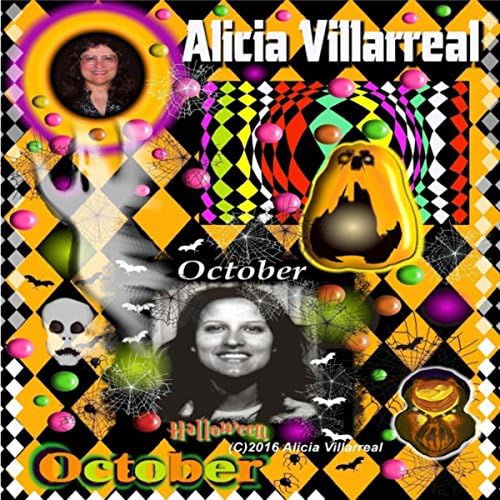
On the Tuesday afternoon of November 8, 2016, I was cold-calling people in Wisconsin, a state an overconfident Hillary Clinton had never visited as a candidate, begging people vote for her. I should have taken that as an omen — in previous days that week, the folks at her Austin campaign headquarters had provided me with lists of names and numbers of voters in Texas, apparently focused on local elections, and Iowa. But by Election Day, it didn’t take me long to realize, the campaign’s upper midwest datasheets were clearly looking more ominous. Which still didn’t prepare me for the shock in store that night. I’d never personally invested so much in an election; may never again.
Not that I’d been having the best autumn of my life before then. To be honest and embarrassing, my suspicion that even some of my own upper midwest relatives might vote Trump had driven me to unlimited IPA consumption, sometimes around the clock. One morning not long before the election, on the way to Austin Telco Federal Credit Union to make a deposit, I pulled over in front of Randall’s grocery to yank Trump signs out the ground, after which I immediately got in a shouting match out my car window with the guy who immediately propped them back up. I asked why he hated people like me, and he insisted he didn’t. Of course, I doubt “people like me” were his primary concern.
To make matters worse, that September, my fourth (and quite possibly best — at least Page 2 of Is It Still Good To Ya? convinces me Robert Christgau thinks so) book had come out, and almost nobody wrote anything about it. This had not happened with my first three, all of which were seemingly reviewed or at least documented just about everywhere (except for the damn New York Times), which I naturally assumed would happen again — But nope, sorry. I realize now I shouldn’t have taken the lack of new notices so personally, given the overwhelming extent to which the music press had deteriorated since even 2011 (when my third came out) and perhaps an accelerating glut of music-book competition. But by 2016 I had resorted to constant joyless hackwork just to pay the bills and hadn’t yet brainstormed the feasibility of, you know, a blog. So I was dejected, feeling sorry for my sad state, and engulfed in self-loathing. Often drunkenly so.

Won’t go deep into my on-and-off extended bender that continued after the election through much of Trump’s presidency at least in part because I couldn’t bear reading the damn New York Times sober; lingering childhood trauma and pain relievers prescribed after a hernia operation didn’t help. Suffice it to say that it took a goodly number of dreaded weekly SMART Recovery (aka AA Lite) meetings, individual therapy, harm reduction, multiple medications, half-hearted tai chi, daily two-hour hikes (still do those), this blog, and a week-long and fortunately VA-funded summer 2019 inpatient stint at Cross Creek Hospital’s rehab clinic for me to get my shit-for-brains back together. (Someday maybe I’ll publish the highly humiliating outtake letter I wrote myself with a rubber pencil, so as not to stab myself.)
Anyway, got off on a bit of self-involved tangent there — not a good look when writing about the year that the world, or at least the post-World War II small-d/small-l democratic liberal order of international cooperation, fell apart (see also: Brexit). And obviously I realize that my demographic (white male middle-aged straight cis-gender Army veteran blah blah blah) is one of the least at risk under the sort of proto-fascist presidency that 2016 rang in. But what can a poor rock critic but to search for relevant connections to this nightmare?
For instance Ann Powers: “‘F— Yourself’: the phrase at the core of so many public exchanges this year, from candidate debates to your own meme-besmirched Facebook page. Civility is dead, apologies are for suckers, and as (Justin) Bieber told one interviewer, owning your total boorishness is more important than learning from it.” Jill Mapes, making a generalization once epidemic among baby boomers: “Historically, art has flourished in times of immense cultural shift. Think of all the great music that came out of the latter half of the 1960s and into the ’70s, as America reckoned with ugly truths…fighting over what society had been and what it should be.” Jake Harris, sounding similarly glass-half-full: “The Drive-By Truckers have…never been as political as they are on American Band, which covers gun rights, shootings, immigration, racial divides, Trumpism and what it means to be a Southerner experiencing all the above. It’s going to be remembered as a forerunner to much of the protest music that will come out of this administration.”

If only they weren’t so slow and monotonous about it. I’m ashamed to say I prefer Scooter (“Chick yeah my chick/Yeah she loves my selfie stick/Yeah my lovely tinderella/When you’re coming under my umbrella/Late at night one swipe to the right/Gonna get a fever cause ya dressin’ so tight/Do it hard and do it bad/But always use a jimmy hat”) and Die Antwoord (“Look at you, coochie coo/Juicy, tushy, gushy, goo/Boobie one, boobie two/Bouncing like a Looney Tune/Booty booming, cookie juice/Gushing out your coochie, boo/You’re so cute like Pikachu/Ain’t no one so sweet like you/I whistle then you sneak into/My lonely heart like peek-a-boo.”) But I’m an idiot.
Stephen Deusner: “On Nov. 9, I began what has turned into an ongoing reassessment of my attitude toward country music. It’s impossible to ignore the genre’s association with destructive conservative politics in the past, or to dismiss the overlap between its audience and the swath of red that elected a horrifically unqualified, undignified man to the country’s highest office.” Jewly Hight: “There was a parallel mini-shift in country toward slower tempos and more subdued sounds. But I found it to be a welcome change, not least because it cleared the way for less restrictive, and less bullishly macho, expressions of masculinity during a year when so much of global politics took on a bullying tone.” Frank Kogan: “I feel emotionally battered by the election, feeling simultaneously vulnerable and malicious, as if I’ll be attacked for anything and nothing and I run constant fantasies of going back and settling old scores.” So he references the Access: Hollywood tape (“Locker room talk: I was molested [in a bullying, taunting way] in an actual locker room when I was a teenager”), but winds up reminding us that “It’s important to dance. Dance to the beat of the living dead.”
Early in 2016, 10 months before the election, Kogan got annoyed on his (then livejournal) blog about how pundits kept referring to social and political demographics as “tribes” when they “actually act much more like classes“; that is, “groups like ‘lower-middle-class whites’ and ‘college-educated blacks’ and ‘Republicans’ and ‘Democrats’ and so on are subgroups within a society.” Whereas a tribe is a society as whole, not just a subset of it.
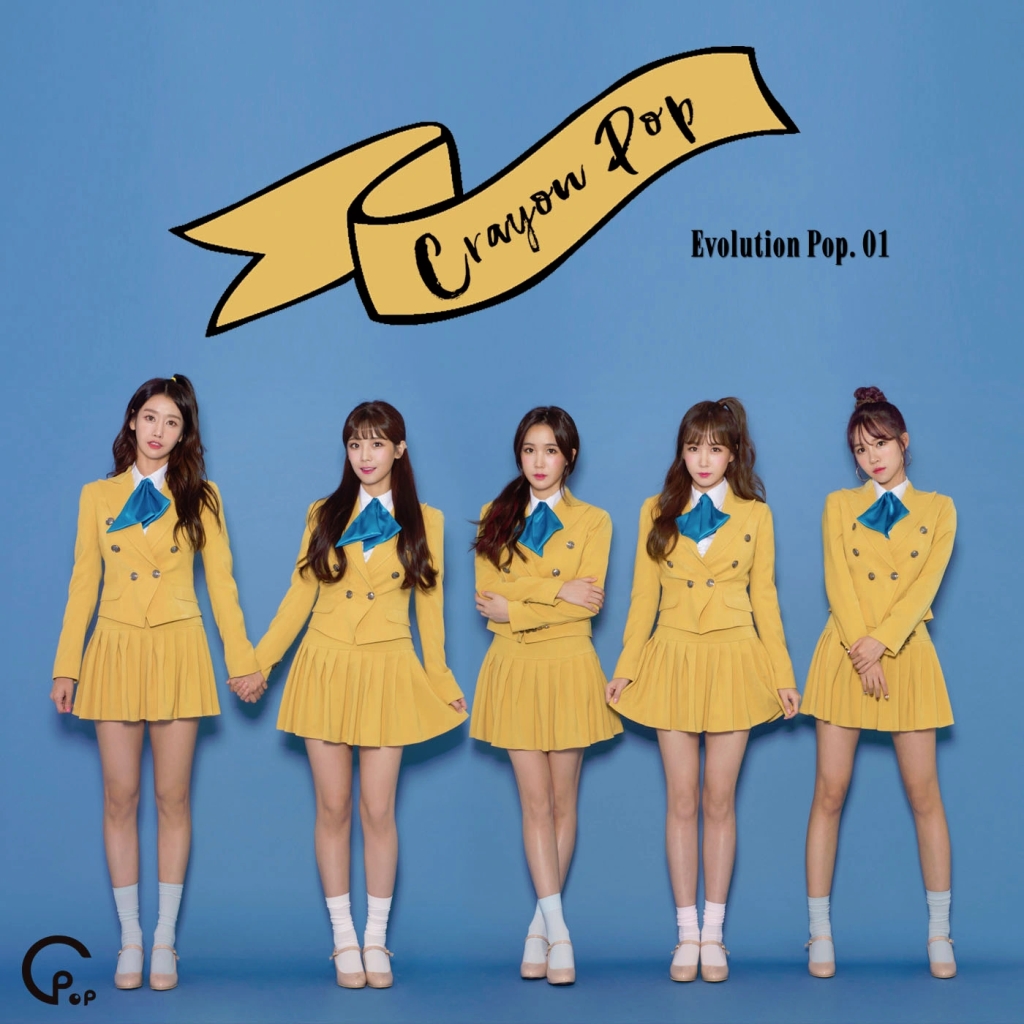
Not sure how this applies to First Nations electronic-dance “pow wow step” Canadians A Tribe Called Red (later known as the Halluci Nation), who made what I consider one of the year’s best albums, or Native Tongue comeback (after 18 years away) rappers A Tribe Called Quest, who made what lots of other critics considered one the year’s best albums (and I liked fine), a record released three days after the presidential election that includes not only a song called “The Donald,” but also one called “We The People…,” a constitutional phrase that has since been hijacked into an implicitly exclusionary recurring slogan by MAGA/QANON conspiracy theorists, selective populists and income tax denialists. (In 2022, Kid Rock even released a very stupid protest single with the same title.)
In March 2016, with the group’s final album mostly recorded, A Tribe Called Quest member since 1985 Phife Dawg died due to diabetes. Starting with Lemmy from Motörehead on Christmas Eve then Natalie Cole on New Year’s Eve 2015, big names in music dropped like flies all through 2016, none bigger than David Bowie (of liver cancer two days after the January 8 release of his rather amorphous but ultimately critic-poll-topping Blackstar) and Prince (accidental fentanyl overdose April 21), though Merle Haggard (pneumonia April 6) comes close.” It might be the deadliest era for pop music legends since 1970-71, when we lost Jimi Hendrix, Janis Joplin, Jim Morrison and Louis Armstrong in a sorrowful span of 11 months,” Ashley Fantz and Brandon Giggs observed on CNN, also naming Glenn Frey, Leonard Cohen, Leon Russell, Paul Kantner, Maurice White, George Michael, and two-thirds of ELP. Add 49 people murdered and 53 wounded in a mass shooting at Orlando gay dance club Pulse in June and 36 people burned to death in a fire at a house music concert in the Oakland artist collective space Ghost Ship in December and it’s even clearer why 2016 felt so depressing. All this affected me, too — to the extent that, on big obituary days, I resorted to disabling Facebook.
Of course, as generations of rock stars enter their dotage, a regular barrage of obits is increasingly inevitable, and we might as well get used to it. In an 8600-word April 2016 essay in Los Angeles Review of Books, SUNY music history professor and baroque specialist Michael Markham hinted at what we might have to look forward to, if centuries-old setlits from the extremely long-running Leipzig Gewandhaus Orchestra unearthed by New Yorker critic Alex Ross are any indication: “At the end of the 18th century, the dead took up only 26 percent of the concert season. By 1870 they controlled 86 percent.” And the trend only accelerated from there: “It is of course not difficult today, if you would like, to get through a season of avid classical concert-going with a perfect 100 percent dead-to-live ratio.”
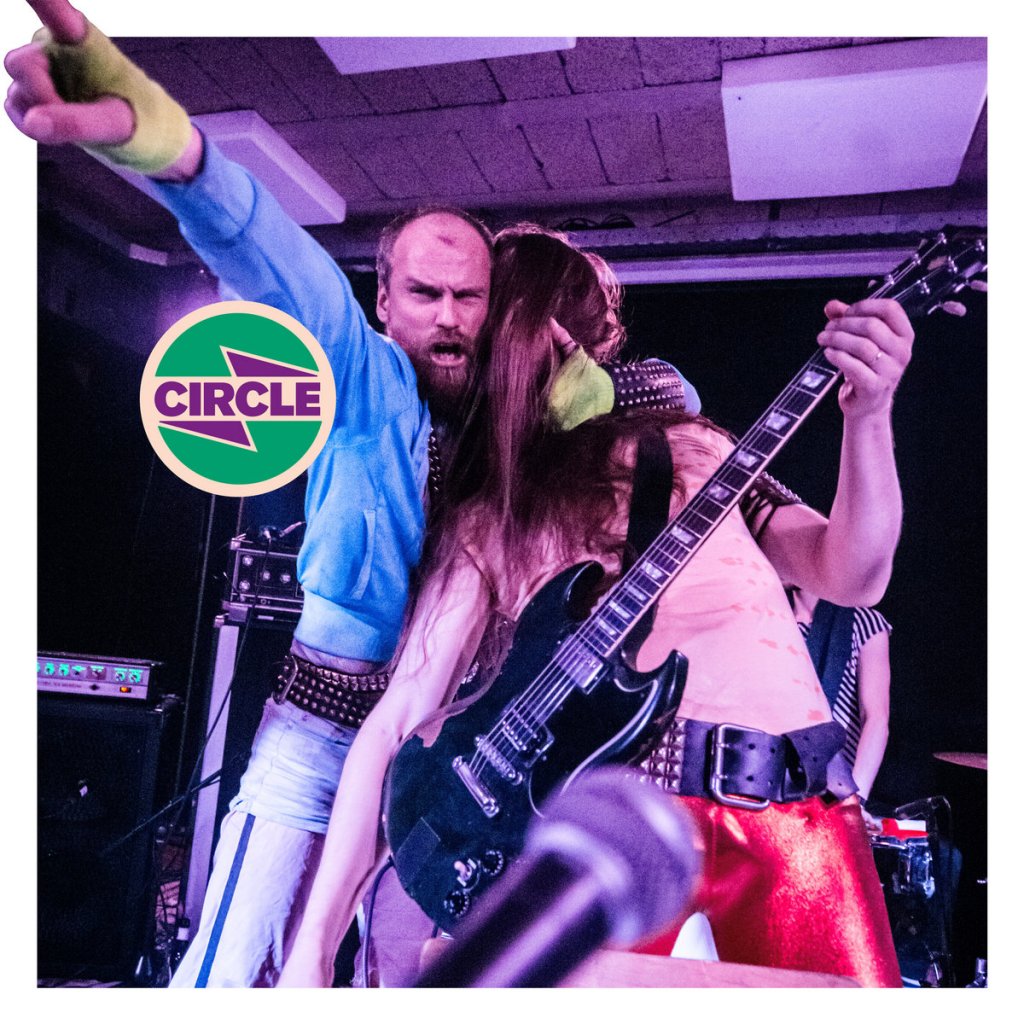
The overriding theme of Markham’s magnus opus wasn’t death, though. It was that almost-as-ancient warhorse, rockism vs. poptimism, which debate he suggests was going on in classical-so-called long before rock or pop existed: “By the late 1900s, the lines were drawn clearly enough that the standard view of music history divided Beethovens from Tchaikovskys as clearly as Carl Wilson would eventually divide Elliot Smiths from Celine Dions.” The Beethoven/ rockism squad, in Markham’s formulation, values “ability to challenge and uplift,” “innovation,” “intellectual exploration” by “pioneers” and “outsiders” and “prophets,” “hard work, not just to make but to listen to,” the “knotty” and “serious,” ” the supremacy of the single creative artist and the autonomy of the ‘great work’”; Team Tchaikovsky/ poptimism opts instead for “cultural reflection”, ways “most people actually listen to music,” “what is immediately and easily understood as ‘pretty’ or ‘fun,” “bearing witness on (the masses’) behalf.”
At times he observes a backlash that uncannily presages recent criticisms of supposed “wokeness”: “Critiques of the new poptimist order hint strongly that the lack of dissent, and even a lack of tolerance for dissent, is nothing less than a threat to critical thought.” Eventually his dichotomy seems to pit “pop” not so much against “rock” as against “the avant-garde,” which isn’t quite the same thing.
Which is to say that when Markham quotes a 1928 newspaper column in which Kurt Weill (who paradoxically I’ve often thought of as the original art-rocker) argues that “if music cannot be placed in the service of the general public then it has lost its reason for being,” the Threepenny Opera composer reminds me less of ostensible 21st Century “poptimists” (whoever they are) so much as Cyndi Lauper fan Dave Marsh scoffing at post-punk bands the Raincoats and Au Pairs in 1984, arguing that “left to itself, the avant-garde talks to mirrors,” since “whether it is ‘progressive,’ in terms of pop culture, depends on whether you actually expect to see progress achieved, or are content just having it discussed in its absence.”

Likewise, for an artistic milieu in post-World War I Germany with which Weill identified, Markham says, “the intellectual rigor of the avant-garde didn’t make it incorruptible and uplifting but rather irrelevant. It was an abnegation of the responsibility to impact one’s moment.” And of course, it was no great stretch to see America in 2016 as an echo of Germany in 1928, when spring elections won the Nazis their first dozen seats in the Reichstag.
In 2016, critics like Lindsay Zoladz heard r&b’s Knowles sisters voicing resistance, on albums that both finished top-five Pazz & Jop and topped the Billboard 200 — which is to say, Beyonce and Solange weren’t speaking their truth to mirrors (even between countless interludes, in the latter’s case.) “I’m overwhelmed by the hyperbole surrounding Lemonade,” Ann Powers posted on Facebook that May, “yet I do think Beyonce might be the one to have finally and fully defeated rockism.”
I wasn’t buying it. “This is a Significant Piece of Work by One Of The Most Important Artists of Our Time, and if you’re ignoring it, you’re out of the loop. If ‘rockism’ ever meant anything (and I’m doubtful), there it is right there. At least with rock’s old ‘classics’ — the vast majority of which probably also involved collaborations with other humans — we weren’t oppressively required to hear them the night they came out,” I kvetched on Powers’ thread. “In 2016, Lemonade is probably ‘rockist’ simply by being an ALBUM…and a CONCEPT ALBUM no less, right? How prog is that?”
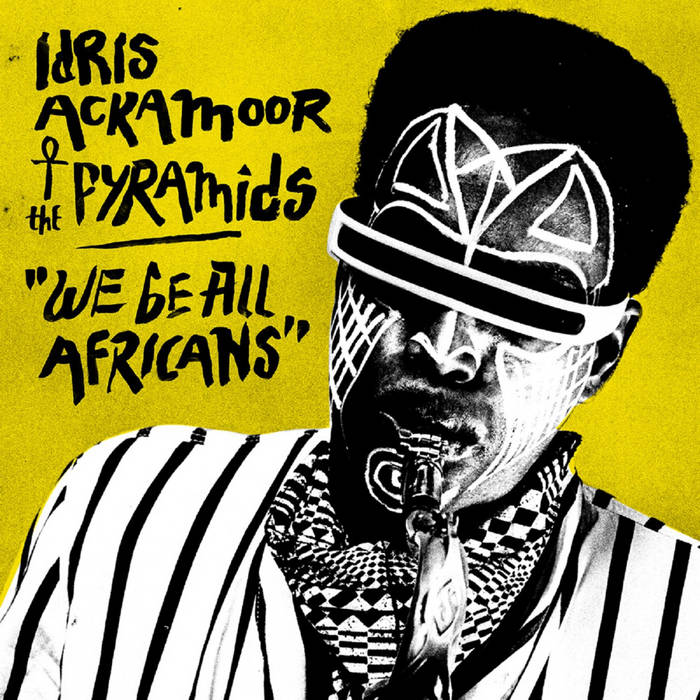
I went on to complain about Beyonce “monopolizing 50% of my Facebook feed (the other 50% being an auteur so rockist he often preferred not to collaborate on his albums with other humans at all).” (RIP Prince.) And then I rambled more: “To me, the scope of discussion seemed way more open and less oppressive in the past… There was not this inane and I’d say innately criticism-defeating pressure to have an opinion NOW, tonight, right this second, or be left out — when you might be paying attention to something that strikes you as way more interesting that weekend. It was entirely okay to mull it over for a few months, or ignore it entirely. There is really no comparison.”
Simon Reynolds, at least, understood where I was coming from lemon-wise, agreeing that Beyonce’s “terms of approbation could not be more rockist. Deep, meaningful, political, Zeitgeist-y, content-heavy, Arty, etc etc. it is celebrated in the same way as Sly Stone or Public Enemy etc were incorporated within rock discourse. Whereas Ohio Players, Brass Construction, Rob Base ‘it takes two’ etc never were because not about capital-C Content, just about dance energy and function. So in fact this particular form of poptimism — annotative, parsing, interpretation slanted — is just rockism with an expanded sense of who the auteur is.”
Frank Kogan, who considers himself more rockist than antirockist since “a lot of life, culture, social systems, etc. are phony, false, dishonest, corrupt,” went so far as to point out that “antirockism is just rockism with a few of the words changed” (i.e., antirockists just trust different stuff), not to mention that “the words ‘rockist’ and ‘rockism,’ they’re a barrier to thought” — though to him, “rockism is about who’s real and who’s fake, and who’s got integrity and who’s been compromised,” not so much (per my and Reynolds’ understanding) who’s Important and Significant. Seems to me the buzzword’s always been used to mean both. But clearly even its definition is up for debate.
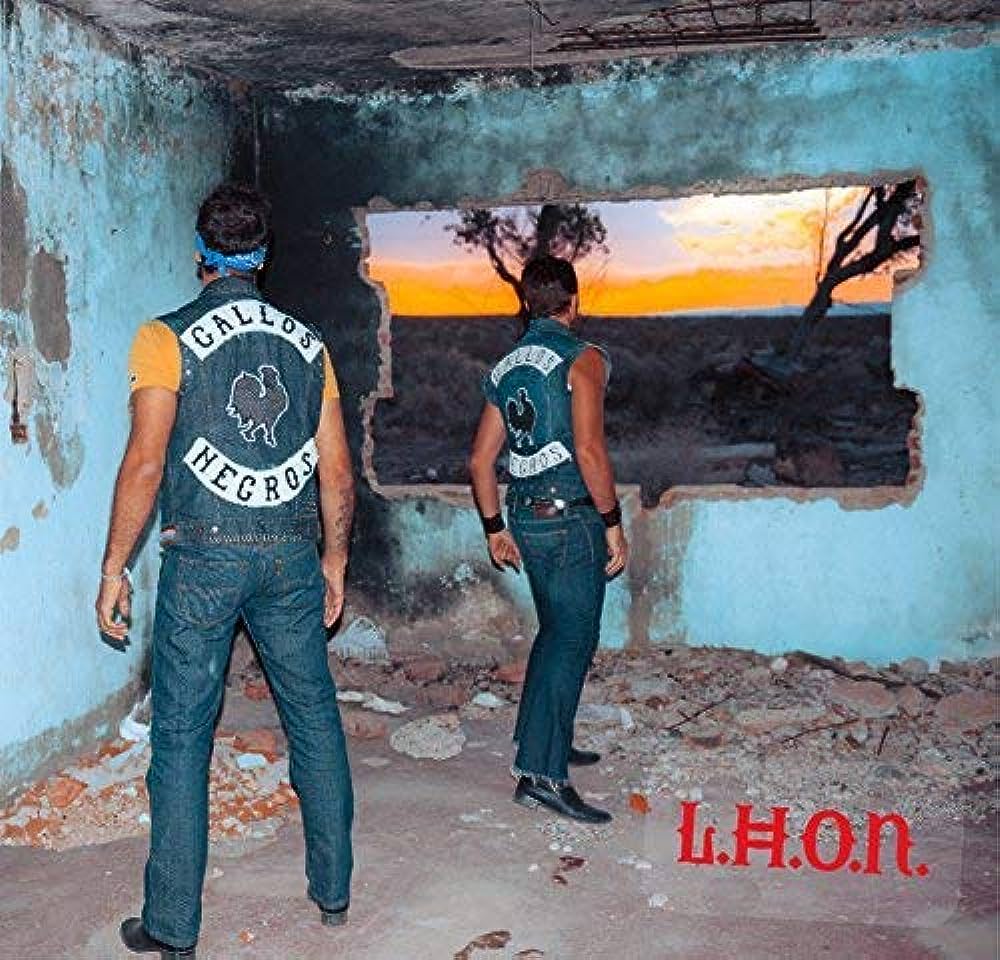
Either way, when Lindsay Zoladz praises Rihanna‘s 2016 Anti in New York magazine for working “very well as an album — a good, old-fashioned front-to-back listening experience,” not just “a predictable and easily digestible product,” “pandering to radio or the charts,” she might as well be offering a master class in How To Rockism. In Forbes of all places that July, author and audio engineer Bobby Owsinski cited the continuing plummet in album sales, particularly by current (read: non-dead) artists, as evidence that “the concept of an album may be as outmoded as a buggy whip”; he proposed returning to the ’50s and early ’60s model where albums mostly collected previously successful singles, each having been publicized upon their own release: “After eight songs (more or less), then a compilation album can be made, and once again, it’s another event to promote.” Which, as far as I can tell, is pretty much what the biz has moved toward since, in the sense that several streamable teaser songs tend to precede albums that may or may not eventually materialize. But to Zoladz, one thing making Anti special is that “it’s not, like a Rihanna album might have been in the past, a definitive dumping ground for everything she’s been up to over the past four years.” Like she said — old-fashioned.
To be fair, I don’t get the idea she disagrees with Owsinksi, not when she ends her review suggesting “Anti feels like the beginning of the end of something we’ve been watching in slow motion for a very long time now: the death of the Big Album as a pop star’s primary means of artistic expression.” But that was January; by year’s end in The Ringer, Zoladz was proclaiming 2016 “a great year for the album,” “best one of the decade, if not the century so far,” so very unlike 2015, when “year-end lists were boring because no artist made anything even approaching the ambition or capital-I Importance of Kendrick Lamar’s To Pimp a Butterfly.” As if widely acclaimed, well, rockist masterpieces have ever made anybody’s year-end list interesting!

Zoladz detected a 2016 “album renaissance” spearheaded by Beyonce, Frank Ocean, Rihanna, Kanye West and Chance the Rapper releases that “all in some ways represented something so new that we didn’t quite have the nomenclature” — apparently because they were marketed as “mixtapes,” or given away for free, or came with visual components, or didn’t come with physical components. Or something.
Or, in Kanye’s case, kept changing their artwork and titles and track listings, sort of like “Sheena is a Punk Rocker” replacing “Carbona Not Glue” on Leave Home, or the fire disappearing from Street Survivors, or Robert Williams’s robot rape disappearing from Appetite for Destruction, or Emotional Fascism getting rechristined Armed Forces, or albums getting different names and alternating different tracks in different territories back to the early Beatles, or pretty much every album becoming a “work in progress” ever since the first time a reissue added “bonus tracks” or an EP was expanded into a longer EP (e.g. Jason & the Scorchers) or even full LP (e.g. Dwight Yoakam)…. oops, I mean LIKE NOBODY HAD EVER DONE BEFORE BECAUSE KANYE WEST IS A SINGULAR GENIUS NOT JUST A NAZI, sorry.
Jack Hamilton in Slate’s year-end Music Club roundtable went so far as to call these sorts of alleged experiments in form “album-like entities”; Jill Mapes at Pitchfork, who also included whichever record Radiohead unleashed that year, sanely stuck with “stunts.” Music Club poobah Carl Wilson, tossing in Kendrick Lamar’s “outtakes-album-that’s-also-really-an-album” (you know like Taking Liberties or Tattoo You or Coda or Prince’s Black Album) Untitled Unmastered, argued “the ontological status of the album has been in flux for years, but in a streaming context it’s more abstract than ever, totally malleable to the user’s whims as well as the artist’s.” More unprecedented than ever!

I’m kidding, sort of. I mean, obviously the definition of “album” sort of evolves over time (and also sort of doesn’t.) And necessity does breed invention — as Keith Caulfield reported in Billboard, album sales were down by a whopping 16.7 percent in 2016, to 200.54 million units– basically falling off a cliff after declines of “6 percent in 2015, 11 percent in 2014, 8 percent in 2013 and 4 percent in 2012.” CD sales slipped under 100 million for the first time since 1986. Yet amazingly, per Rolling Stone, the $7.7 billion in revenue that the RIAA reported in 2016 was “the music industry’s highest gross since 2009 and, at an 11 percent improvement over 2015, its best gains percentage-wise since 1998.” Streaming made a gigantic difference — not that it was reflected in most artists’ royalty checks or tax returns.
So anyway. Albums. “What the novel is to literature,” as Jack Hamilton put it, “the taken-for-granted benchmark of artistic validity.” I don’t necessarily prefer them to singles myself, but right now, they’re easier to deal with — or at least, to grasp what’s out there to choose from. If I live long enough, I’ll get to singles eventually, I hope. But for now, I list a requisite 150 2016 albums I like and/or love below, with the global south (well, Ghana, Brazil, South Africa and Jamaica — apparently Israel and South Korea don’t qualify) represented most near the top.
Metal does well too — just one album in the top 15, but more or less 13 in the top 50 and twice that total. Jazz and electronic shake out in the 16-to-17 range overall, not too shabby. Country, r&b and hip-hop are neck and neck, with approximately a dozen picks each depending what you count — though of those three genres, rappers easily dominate the higher rungs, r&b places five between #73 and #82, and half the country albums rank #118 or lower. Also, there are at least slightly more albums by solo guitar players, soundtrack albums from movies I’ve never seen, and albums where famous women get revenge on their celebrity partners than usual. (Shooter Jennings’s Giorgio Moroder tribute album counts as electronic, not country, in case you wondered. Just like all Eurodisco homages by outlaw country scions.)

In 2021, a comedian named James Acaster apparently put out a book called Perfect Sound Whatever wherein he calls 2016 the best year for music ever, thanks to how it helped him deal with a romantic breakup. From the Amazon blurb: “Idly browsing ‘best of the year’ lists, it dawns on him that 2016 may have been a grim year for a lot of reasons, but that it seemed to be an iconic year for music. And so begins a life-changing musical odyssey, as James finds himself desperately seeking solace in the music of 2016, setting himself the task of only listening to music released that year, ending up with 500 albums in his collection…Some albums are life-changing masterpieces, others are Howdilly Doodilly by Okilly Dokilly, a metalcore album devoted to The Simpsons‘ character Ned Flanders, but all of them play a part the year that helped James Acaster get his life back on track.” Interviewed by the BBC, he confessed that “if I list my favourite albums now, most of them were released in 2016.” He even started a podcast with that theme. Well like I said, he’s a comedian. (No idea how many 2016 albums we have in common, but you can do the computation if you’re so inclined.)
Charlotte Gunn, meanwhile, started working at UK pop weekly the New Musical Express in late 2015, and she places 2016 atop her music-year hierarchy because “music shifted from being a passion, to occupying my every waking thought. The records of that year remind me of the most special time of my adult life: making new best mates, getting to write about things I love and having unique experiences that combined the two. It was like being a teenager again, at age 30.” But her apparent NME co-worker at the time, Jordan Bassett — citing visual albums and long albums and “the return of. the skit” and white X Factor rapper Honey G and pharma-creep/Wu Tang benefactor Martin Shkerli and people saying “vinyls” and Kanye hugging Trump and “all the deaths” — begs to differ. “Recognize yourself as the worst year in recent memory,” he tells 2016. “Yes, you really were a cockwomble.”
Less Britishly and more objectively, Chris Molanphy at Slate nonetheless noted that his “social media feed has been a collective howl of protest—from some of the most centrist and pro-pop critics—about what a world-historically awful year 2016 was for the U.S. charts.” He personally figured 1991 and 2006 were “just as dispiriting”; I don’t have much of an opinion on the matter, though I will note that a top 10 singles ballot I filed in 2016 includes almost nothing that made any US chart, and definitely no songs that reached the Top 40: Aziz “Habibi”; Your Old Droog “42 (Forty Deuce)”; Charles Kelley “Lonely Girl”; Tiggs Da Author “Run”; Fred Locks and Sizzla “Black Star Liner Rebirth”; Borgore feat. Barrington Levy “Blast Ya”; Mayer Hawthorne “Lingerie & Candlewax”; El Komander “Tragos de Alcohol (Con Mariachi)”; Yemi Alade “Ferrari”; Cabbage “Kevin.” “Lonely Girl” — a blue-eyed soul plaint by the tallest third of the trio then still called Lady Antebellum — got to #52 on Billboard‘s Country Airplay chart, and as far as I can tell, that’s it. But like my long-player selections (at least the ones I heard then), they all helped me get through. Which, when you’re talking a year like 2016, definitely isn’t nothing.
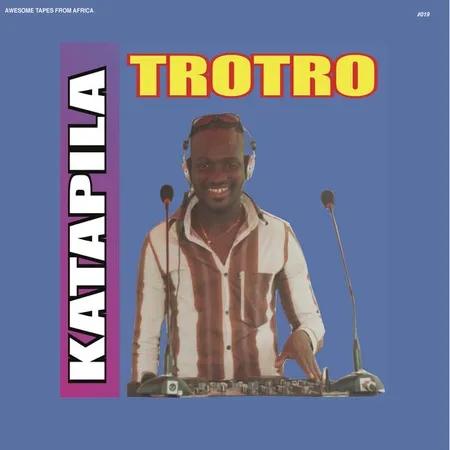
- Metá Metá MM3 (Jazz Village Europe)
- DJ Katapila Trotro (Awesome Tapes From Africa)
- Idris Ackamoor & the Pyramids We Be All Africans (Strut UK)
- Crayon Pop Evolution Pop_Vol. 1 (Sony/Chrome Entertainment South Korea)
- Soulwax: Belgica (Play It Again Sam UK)
- Etienne Charles San Jose Suite (Culture Shock Music)
- Admiral Sir Cloudesley Shovell Keep It Greasy! (Rise Above)
- A-Wa Habib Galbi (S-Curve/BMG)
- Maren Morris Hero (Columbia Nashville)
- Acid Arab Musique De France (Crammed Discs Belgium)
- Scooter Ace (Sheffield Tunes/Kontor Germany)
- T.T. the Artist Queen of the Beat (Zoo On Mars Entertainment)
- A Tribe Called Red We Are the Halluci Nation (Radicalized/Pirates Blend)
- Factory Floor 25 25 (DFA)
- Equiknoxx Bird Sound Power (DDS)
- Charlie Haden Liberation Music Orchestra Time/Life: Song for the Whales and Other Beings (Impulse!)
- Underworld Barbara, Barbara We Face a Shining Future (Astralwerks)
- Sumerlands Sumerlands (Relapse)
- Mary Halvorson Quartet Away With You (Firehouse 12)
- Die Antwoord Mount Ninja and Da Nice Time Kid (Zef Recordz)
- Cave Of Swimmers Reflection (Cave of Swimmers)
- Opeth Sorceress (Nuclear Blast)
- Mr. Lif Don’t Look Down (Mello Music Group)
- The Comet Is Coming Channel the Spirits (Leaf UK)
- Hammers of Misfortune Dead Revolution (Metal Blade)
- Diamond Head Diamond Head (Dissonance Productions UK)
- Mr. Oizo All Wet (Ed Banger/Because Music)
- Omar S The Best! (FXHE)
- E E (Thrill Jockey)
- Carla Bley/Andy Sheppard/Steve Swallow Andando El Tiempo (ECM)
- Blood Ceremony Lord of Misrule (Rise Above)
- A$AP Ferg Always Strive and Prosper (Pologrounds/RCA)
- Hexvessel When We are Death (Century Media)
- Charlemagne Palestine Cathédrale De Strasbourg (Erratum France)
- King We are King (King Creative)
- Nduduzo Makhathini Icilongo: The African Peace Suite (Gundu Entertainment South Africa)
- Churchwood Hex City (Saustex)
- Wadada Leo Smith America’s National Parks (Cunieform)
- Shooter Jennings Countach: For Giorgio (Black Country Rock)
- High Spirits Motivator (High Roller Germany)
- Hieroglyphic Being The Discos of Imhotep (Technicolour)
- Goat Requiem (Sub Pop)
- Oren Ambarchi Hubris (Editions Mego Austria)
- Cauldron In Ruin (The End)
- My Side Piece (Music Access Inc.)
- Voivod Post Society (Century Media)
- Lil Debbie Debbie (Lil Debbie/Format)
- The Erkonauts I Did Something Bad (Kaotoxin France)
- Universal Totem Orchestra Mathematical Mother (Black Widow Italy)
- Anvil Anvil is Anvil (SPV/Steamhammer Europe)
- Carlinhos Brown Artefireaccua: Incinerando o Inferno (Candyall Brazil)
- Metal Church XI (Rat Pack)
- Kenny Garrett Do Your Dance (Mack Avenue)
- Ka(t)e Tempest Let Them Eat Chaos (Lex)
- Kero Kero Bonito Bonito Generations (Double Denim UK)
- Henry Threadgill Ensemble Double Up: Old Locks and Irregular Verbs (Pi)
- Gary Lucas’ Fleisherel featuring Sarah Stiles Music From Max Fleischer Cartoons (Cunieform)
- Dr. Lonnie Smith Evolution (Blue Note)
- BJ the Chicago Kid In My Mind (Motown)
- Cabbage Le Chou (Play & Record UK EP)
- Information Society Order of Magnitude (Hakatak)
- Septagon Deadhead Syndicate (Cruz Del Sur Italy)
- Brandy Clark Big Day in a Small Town (Warner Bros.)
- Cerrone Afro (Because/Malligator France EP)
- Margo Price Midwest Farmer’s Daughter (Third Man)
- Tyvee Origins of What (In The Red)
- Van Der Graaf Generator Do Nt Disturb (Esoteric Antenna UK)
- Mr. Fingers Outer Acid (Alleviated Netherlands EP)
- Horse Lords Interventions (Northern Spy)
- American Honey (UMe)
- Mark Ernestus’ Ndagga Rhythm Force Yermande (Ndagga Germany)
- JD Allen Americana: Musings on Jazz and Blues (Savant)
- Kari Faux Lost En Los Angeles (Wolf & Rothstein)
- Beyonce Lemonade (Parkwood Entertainment)
- Miranda Lambert The Weight of These Wings (Warner/RCA Nashville)
- Solange A Seat at the Table (Columbia)
- Fates Warning Theories of Flight (Inside Out)
- Brothers Osborne Pawn Shop (EMI Nashville)
- Anthony Hamilton What I’m Feelin’ (Mister’s/RCA)
- Mutants of the Monster: A Tribute to Black Oak Arkansas (Saustex)
- Frankie Ballard El Rio (Warner Nashville)
- Laura Mvula The Dreaming Room (Sony/RCA Europe)
- Roy Montgomery RMHQ: Headquarters (Grapefruit)
- Thy Catafalque Meta (Season of Mist France)
- Yussef Kamaal Black Focus (Brownswood Recordings UK)
- Tacocat Lost Time (Hardly Art)
- A Tribe Called Quest We Got It From Here…Thank You 4 Your Serivce (Epic)
- Daniela Mercury Virtual Vinyl (ORG Brazil)
- Spray Paint Feel the Clamps (Goner)
- The Dwarfs of East Agouza Bes (Nawa Recordings)
- Africaine 808 Basar (Golf Channel)
- Tower Tower (The End)
- Xenia Rubinos Black Terry Cat (Anti-)
- Amnesia Scanner AS Live [][][][][] (Amesia Scanner EP)
- Dark Forest Beyond the Veil (Cruz Del Sur Italy)
- Circle 6000 km/h Part 2 (Full Contact Finland)
- The Intended Time Will Tell (In The Red)
- Heron Oblivion Heron Oblivion (Sub Pop)
- Chris Forsyth & the Solar Motel Band The Rarity of Experience (No Quarter)
- Arthur Doyle First House (Amish)
- John Scofield Country for Old Men (Impulse!)
- Alicia Villarreal October (Alicia Villarreal Mexico EP)
- David Farias Yolando Alto (V.M.B.Music Group)
- Kvelertak Nattesferd (Roadrunner)
- Bill Charlap Trio Notes From New York (Impulse!/Verve)
- Wretch Wretch (Bad Omen)
- Kenny Barron Trio Book of Intuition (Impulse!/Verve)
- Vektor Terminal Redux (Earache)
- Shabaka and the Ancestors Wisdom of Ancestors (Brownswood)
- Mekons Existentialism (Sin/Bloodshot)
- David Bowie Blackstar/★ (Columbia)
- Kanye West The Life of Pablo (Def Jam/G.O.O.D. Music)
- Allen Toussaint American Tunes (Nonesuch)
- Pokey Bear Mr. It Ain’t Fair (Music Access/JSP)
- Tweet Charlene (eOne)
- Chance the Rapper Coloring Book (Chance the Rapper)
- Dalek Asphalt for Eden (Profound Lore Canada)
- Kevin Gates Islah (Atlantic)
- Illya Kuryaki & the Valderramas L.H.O.N.: La Humanidad O Nosostros (Epic Argentina)
- Charles Lloyd & the Marvels I Long to See You (Blue Note)
- Lori McKenna The Bird & the Rifle (CN/Thirty Tigers)
- 75 Dollar Bill Wood/Metal/Plastic/Pattern/Rhythm/Rock (Thin Wrist)
- Suzi Analogue Zonez V.1 (Suzi Analogue)
- The Fall Wise Ol’ Man (Cherry Red UK EP)
- M.I.A. AIM (Interscope)
- Kenny Chesney Cosmic Hallelujah (Blue Chair/Columbia)
- Rihanna Anti (Westbury Road/Roc Nation)
- Suzi Analogue Zonez V.2: The Speakers Push Air, and My Tears Dry (Never Normal)
- Intocable Highway (BMG/Fonovisa)
- Brent Cobb Shine on Rainy Day (Elektra/Low Country Sound)
- The Vision Bleak The Unknown (Prophecy Productions Germany)
- Bun E. Carlos Greetings From Bunezuela! (eOne)
- Heavy Metal Anti-Music, Anti-Sense, Anti-You/LP (Static Ace Germany)
- Drive-By Truckers American Band (ATO)
- Danny Brown Atrocity Exhibition (Warp)
- Charles Kelley The Drifter (Capitol Nashville)
- Spiritual Beggars Sunrise to Sunset (Inside Out Europe(
- Grand Magus Sword Songs (Nuclear Blast)
- Rick Springfield Rocket Science (Frontiers)
- Warren Wolf Convergence (Mack Avenue)
- Holy Grail Times of Pride and Peril (Prosthetic)
- The Temperance Movement White Bear (Fantasy)
- Kaytranada 99.9% (XL)
- Corinne Bailey Rae The Heart Speaks in Whispers (Virgin/Good Grooves Sound)
- Jennifer Nettles Playing Wtih Fire Big Machine)
- Oceans Of Slumber Winter (Century Media)
- HyunA A’wesome (UMG/Cube Entertainment South Korea EP)
- William Bell This is Where I Live (Stax)
- Fat White Family Songs for Our Mothers (Fat Possum)
- Love Of Lesbian El Poeta Halley (DRO Spain)

via facebook:
Steve Pick
Great piece, Chuck, with a lot to chew on. Political nightmare of a year, musical middling (at least as far as most critics faves). As for your list, I don’t think I heard anything until number 60, and after that it’s mostly the country ones I liked. You’re getting nearer to the time I was able to hear a lot more new stuff. Right now, I wonder how many of your faves might have worked for me if I’d heard them.
Chuck Eddy
You never heard Maren Morris?? (Not complaining; you’re the first person to even comment on this post! I suspect the essay might be rough going — especially those first few paragraphs, which might take some by surprise.)
Steve Pick
I didn’t hear her then. Eventually I got to her. But I’m 2016 I was still telling on promos and that one didn’t come my way. By the way, the first part was rough going but very well done, considering you were coming from a completely different angle to alcohol than we are used to.
Chuck Eddy
Thanks. I cringe reading it myself, but wanted to get it out there.
Edd Hurt
It’s always good to see the rockism-poptimism so-called dichotomy exposed for the silliness it’s always been. I mean really. Certainly in country ’16, some would say (not me) that Margo Price’s first album represents a triumph of rockist country, certainly it’s not pop by my standards, though it’s arguably *retro* country which means it’s copping to a pop sensibility (the ’70s in country) within country that is now, like, accepted grammar and also safely in the past. Lori McKenna is also singer-songwriter “pop” and Miranda Lambert’s album is studio-rock country. Points for including the most interesting Kenny Chesney album.
Christian Iszchak
Thanks for wading through the year end swamp. The life of pablo paragraph made me laugh, as does your attitude towards all things “unprecedented”.
LikeLike
Chuck
Remember me, John Fortunato, the Aquarian/High Times writer – not your high school classmate. I made list of my favourite albums (alternate albums listed separately and starting in 77). Its at my website http://www.beermelodies.com.
It has my beer and music articles as well. I hear youre in Austin. If you get back to NYC, look me up at jf1155@verizon.net
LikeLike
Just found this facebook comment I wrote about Blackstar back then:
I’m not following the lyrics hardly at all. Which is not unheard of with Bowie, even when he was great. The songs are reminding me now and then of the most tuneless and pretentious parts of Diamond Dogs except probably worse. Which is also not necessarily always a bad thing (the Diamond Dogs, at least, if not the “worse”). I like that he’s using his high register (which I didn’t even realize he had anymore) so much. There’s something echoey going on with his vocals sometimes that reminds me old….Tom Verlaine? David Byrne? David Bowie? One of those guys, back in new wave days. I like some of the music backing him up, too — Title track seems to lose its groove halfway through, but “Sue (Or in a Season of Crime)” has some punky funky James Blood Ulmer style harmolodics going on. Album cover reminds me of the fourth Stone Temple Pilots album — maybe he misses Weiland. Who was a glam rocker too, in his own way.
LikeLike